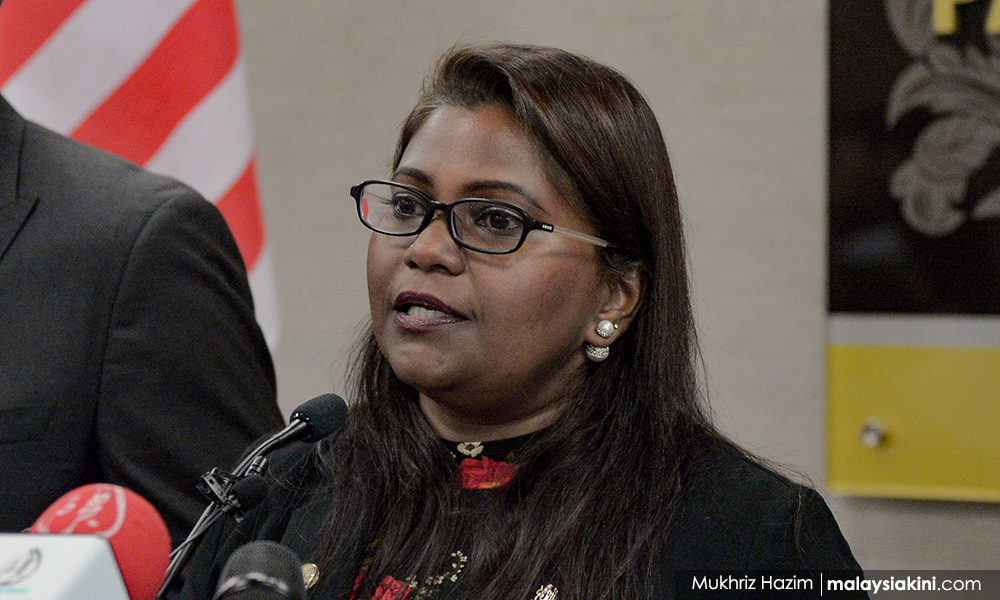COMMENT | The many times we were asked how we would envision Malaysia in 2020, I never imagined the first full Parliament sitting of the year would start with remarks smacking of racism and sexism.
Most disappointingly, I never imagined that such an incident in our legislative body would mirror the realities women and marginalised communities continue to face.
Sexism and discrimination in the workplace disproportionately affect women - and women in Parliament are no exception. But the toleration of such practices appears to be entrenched in the established culture.
It is not the first time incivilities targeting women MPs manifested through derogatory jokes or snide comments. In fact, some policymakers infamously known as ‘repeat offenders’ are sitting in Parliament at this very moment.
Despite sexist remarks having been made an offence through an amendment to the Parliament’s Standing Orders in 2012, offenders are rarely brought to task. When legislators get away with making gender-based personal attacks, it sends a strong message that Parliament accepts abusive behaviour with impunity.
As a young Malaysian woman who voted for the first time in the last general elections, I refuse to accept sexist behaviours perpetrated by our legislators. I am certain many will resonate with my call on MPs to categorically reject all forms of sexism.
It is imperative to end impunity and hold offenders accountable for their actions to protect the fundamental dignity of all persons.
Women make up almost half of Malaysia’s population, and the number of registered women voters in the last elections outnumbered that of men. However, parliamentary action suffers from the underrepresentation of women with only 33 women parliamentarians elected to office.
The Pakatan Harapan administration had nine women in the cabinet - five ministers and four deputy ministers. Although this figure remains the same under Perikatan Nasional, the ratio of women to men in the cabinet has dropped to a mere 13 percent given that the cabinet was enlarged.
Sexism perpetrated against women in Parliament exacerbates this underrepresentation by undermining the willingness of women to enter politics, adding to the myriad of systemic constraints women face in pursuing politics.
Parliamentary action also suffers from the violation of freedom of expression, which is targeted at women representatives - whether perniciously or explicitly through sexist remarks - to silence them.
Sexism may be aggravated by other forms of discrimination, including discrimination based on ethnicity. Inter-Parliamentary Union studies show that young female parliamentarians, those belonging to the opposition or minority groups, and those advocating against gender inequality are often the most targeted.

The recent attack against Batu Kawan MP Kasthuriraani Patto (photo), for questioning the absence of women representation in the Parliamentary Selection Committee, is case in point.
When women are undermined in discharging the duties entrusted to them by the rakyat, the abuse extends beyond their own civil and political rights. It impacts the rights of citizens to effective representation, and thus democracy itself. Evidently, the equitable participation of women in politics is key to fostering and sustaining a vibrant democracy.
The consequences of sexism in Parliament, which degrades the effectiveness of parliamentary work and impairs women parliamentarians’ ability to fulfil their elected mandate, must be recognised and addressed.
Merely retracting a statement has proven inadequate. Clear disciplinary sanctions commensurate to the offence should be established. Equally important to the establishment of remedies is the implementation - disciplinary sanctions rigorously applied have proven to have a dissuasive effect.
Studies on intervention strategies for the prevention of sexual harassment in the workplace illustrate that the certainty of sanctions is as important as the severity of such responses.
There must be a strong political commitment from both sides of the aisle to ensure that Parliament is respectful and inclusive, and free of sexism and gender-based harassment.
Civil society is demanding elected officials observe the ethical principle of dignity applicable to all MPs and foster an environment respectful of women and marginalised groups.
Those who work to ensure the fundamental rights for all are likely fair well at the next elections, particularly when young people comprise the majority of voters.
The writer is a concerned first-time-voter and young Malaysian woman working for the protection and promotion of human rights in Asia and beyond.
The views expressed here are those of the author/contributor and do not necessarily represent the views of Malaysiakini.

